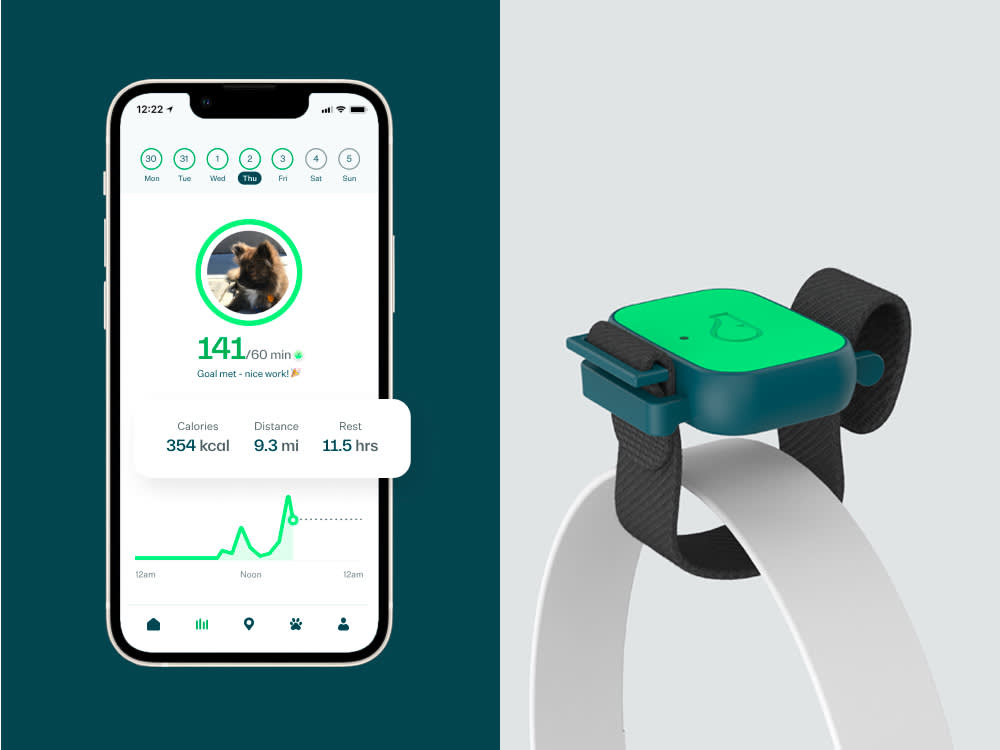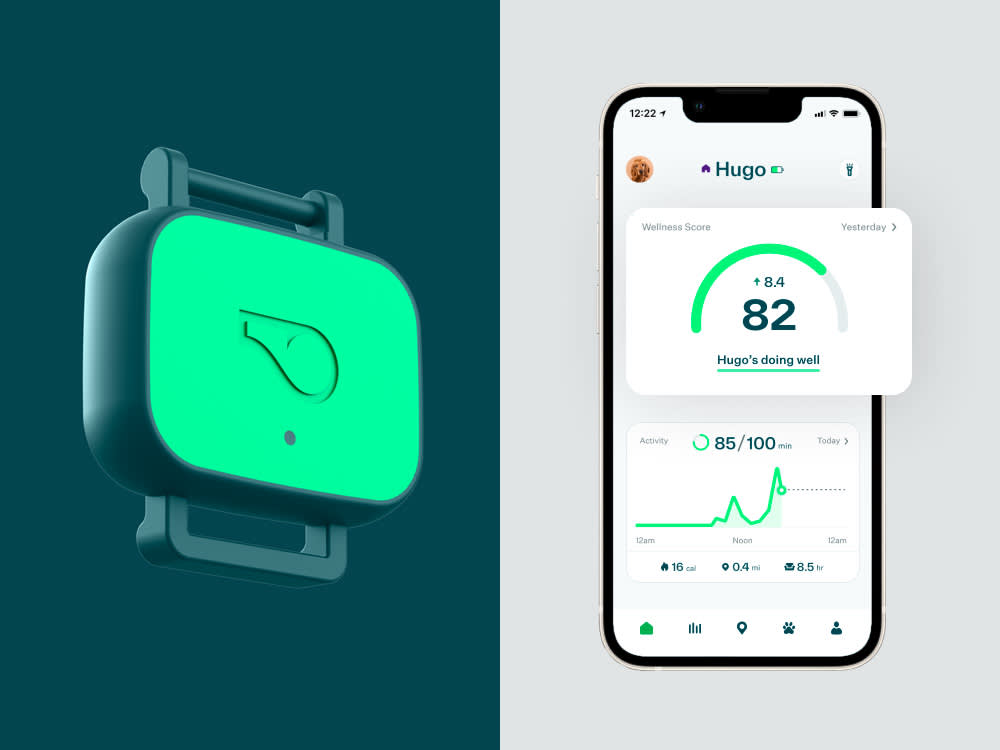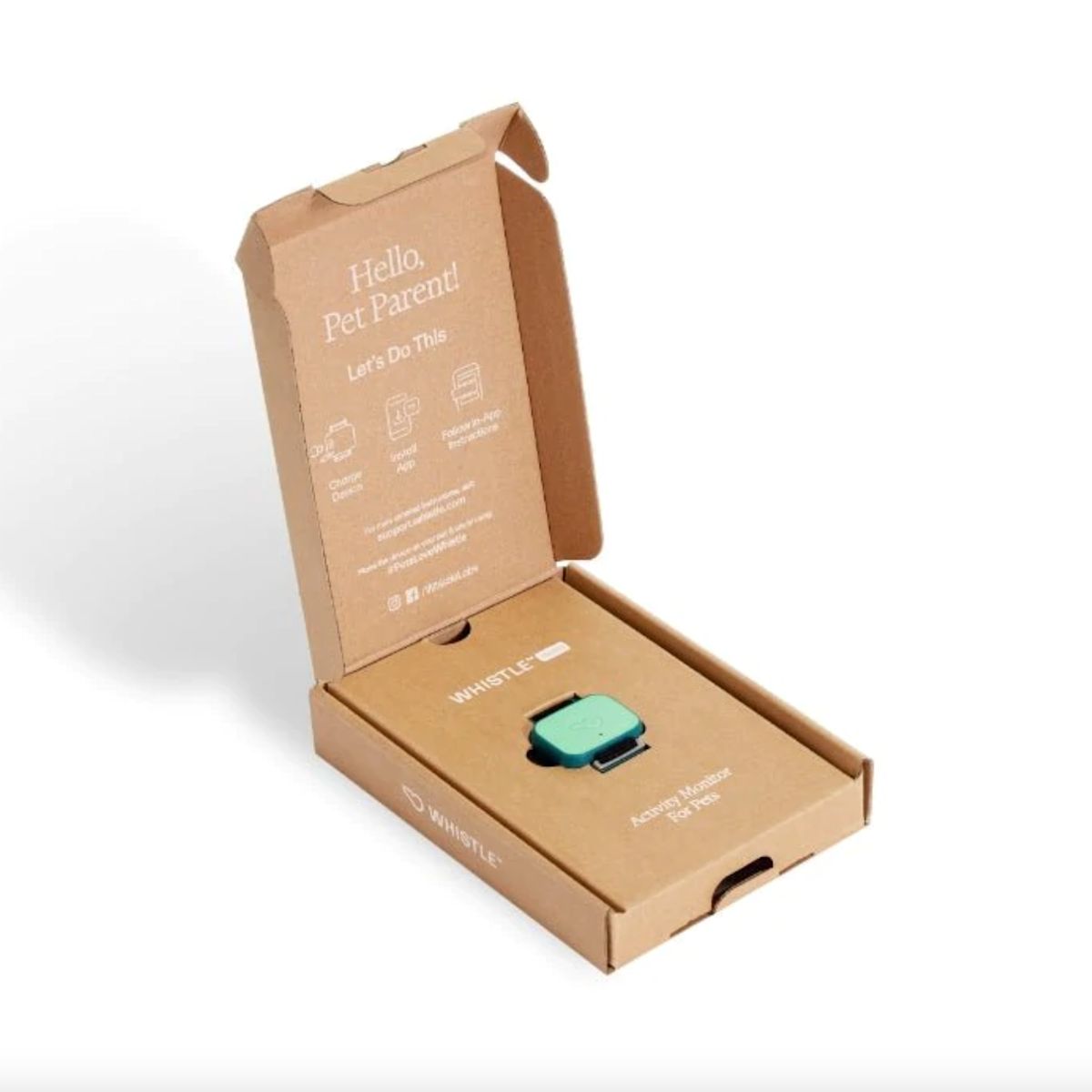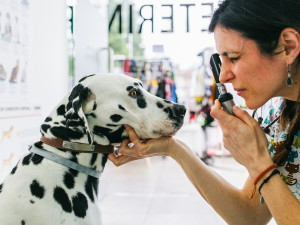Whistle’s New Smart Collar Is Giving Pets a Voice
Your dog can’t tell you if they don’t feel well, but the cutting-edge AI behind this health tracker can.
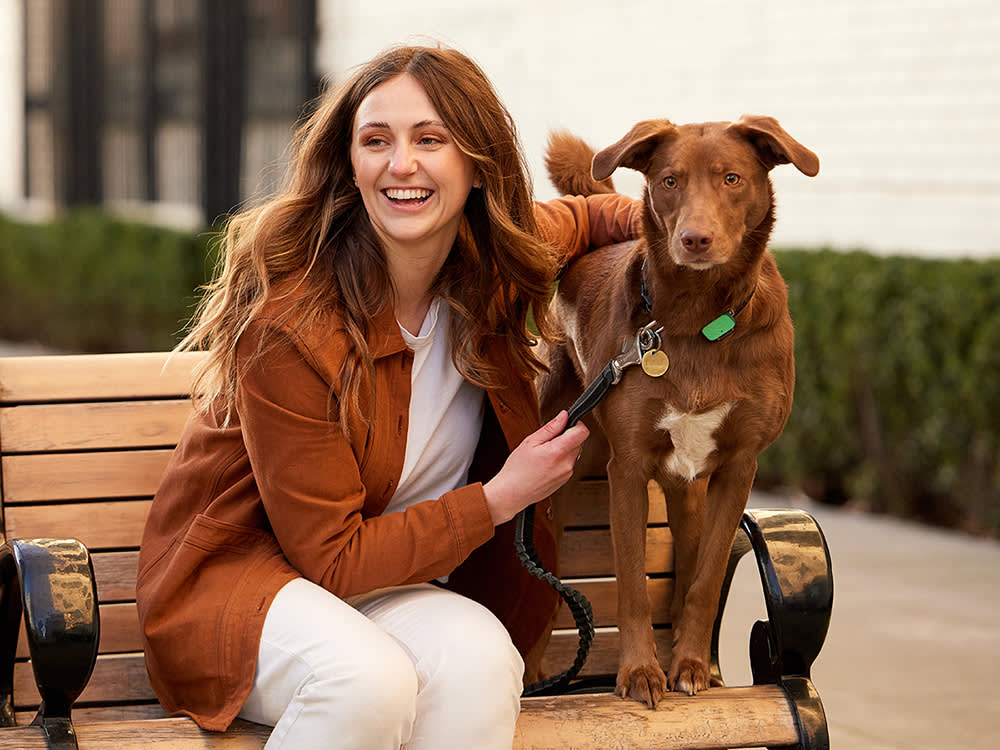
Share Article
Twenty years ago, the idea of a device you wear daily that monitors your health and allows you to send messages instantly with a tap of the wrist would seem like science fiction. Today, Apple Watches and similar smart timepieces are so common that they’re rarely acknowledged by anyone but the wearer. Millions of people casually walk around with these devices every day, sending texts the way their ancestors checked the time — all while having their heart rate monitored. In fact, several studiesopens in new tab have concluded smartwatches can even reduce the risk of stroke by detecting irregular heartbeats.
Of course, if it works for us it should work for those we love most so Whistleopens in new tab took this concept and brought it into the pet space with their smart collars. That being said, their technology might have made Steve Jobs sweat right through his turtleneck. The device’s advanced AI — that can analyze daily behaviors for personalized, proactive, preventative care — that is truly state-of-the-art. It’s led by the expertise of The Pet Insight Projectopens in new tab, an award-winning team of vets and data scientists who’ve studied the medical records and behavior of over 100,000 dogs to determine how certain actions relate to health.
It all stems from one fundamental truth, as Dr. Aletha Carson, veterinarian and Senior Manager of Data and Clinical Studies at the Pet Insight Project, tells me, “Pet parents want to know how to take care of their pets.” Whistle tracks every movement, each scratch, lick, and sip to determine if they’re abnormal or excessive in any way that might suggest a risk is apparent. “Once [pet parents] are provided with that actionable data, then they can go ahead and seek what the best care is for their pets,” she explains.
It may initially seem obvious but we can’t monitor our pets 24/7 in the way you would for your own health. If a person feels ill, they will (hopefully) seek medical attention to suss out the root cause — Whistle gives pets the same ability. “Unlike human patients or people, your pet can’t tell you if they don’t feel well or if they need something. And really what we’re doing, especially with these alerts, is giving your pet a voice,” says Scott Lyle, Head of The Pet Insight Project.

All activity — eating, sleeping, drinking, scratching, and licking — is tracked in your personalized Whistle app, which features machine-learning algorithms to monitor habits and project possible allergies or chronic conditions. What makes all this information possible is an accelerometer device that sits within each collar. “It takes a lot of measurements on a very small scale,” explains David Allen, Project Manager at Whistle Labs. “I’m talking 150 different measurements every second. So it’s really fine-tuned. A human would never be able to interpret what’s going on in this accelerometer data.”
So it is solely a job for what 100-plus years of dystopian cinema would have us believe is the next evolution of life on this planet — artificial intelligence. Beyond possibly inadvertently aiding the robot apocalypse, Whistle is really only focused on one thing — bettering the health and wellness of your pet. According to Lyle, “Just like having a child, the emotional reward of caring for your pet is so important. And that’s really what it’s all about at the end of the day.”
* Whistle is a Kinshipopens in new tab brand. We think their products are pretty cool, but we don’t play favorites. So, when a product has family ties, we’ll be real with you.

Sean Zucker
Sean Zucker is a writer whose work has been featured in Points In Case, The Daily Drunk, Posty, and WellWell. He has an adopted Pit Bull named Banshee whose work has been featured on the kitchen floor and whose behavioral issues rival his own.
Related articles
![Brown Labrador lifting front leg]()
How to Get a Head Start on Your Pet’s Health
Spot lumps, limps, and lethargy early on.
![Puppy lies in owner's lap and gets a belly rub]()
DIY Physical Exam Part 1 — How to Check Your Dog’s Vitals
Veterinarian Dr. Shea Cox on how to take your dog’s temperature, find their pulse, and check their heart rate.
![Golden retriever running around a local park during sunset]()
The Macro Benefits of Microchipping Your Dog
Sure, microchips can feel a little 1984. But if your pup has a chip, they’re four times more likely to make it home if they get lost.
![Young female veterinarian in her consulting room performing a medical examination on a dog for diabetes]()
How to Spot, Treat, and Prevent Diabetes in Your Dog
Learn which breeds are at risk, the symptoms to look out for, and what treatment options are available.

